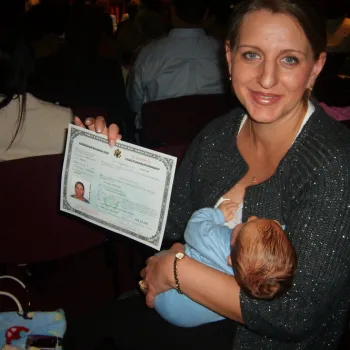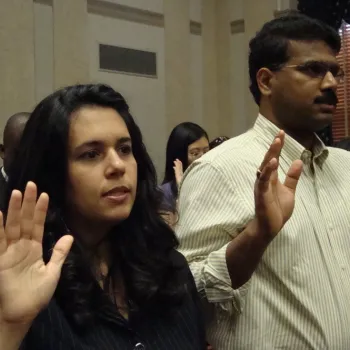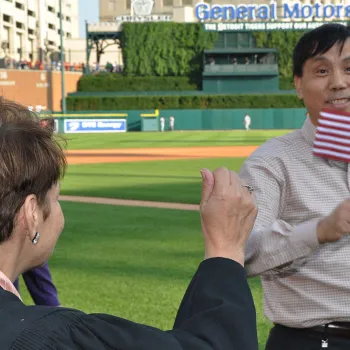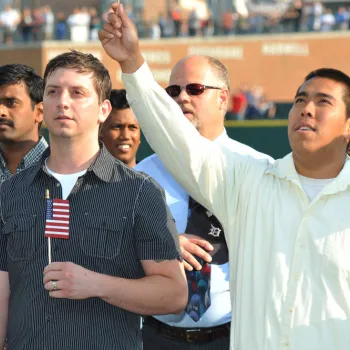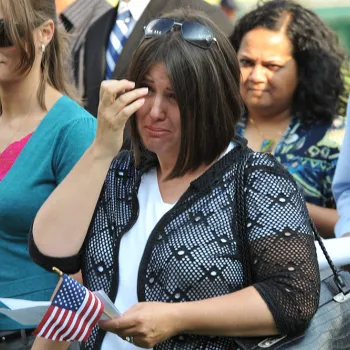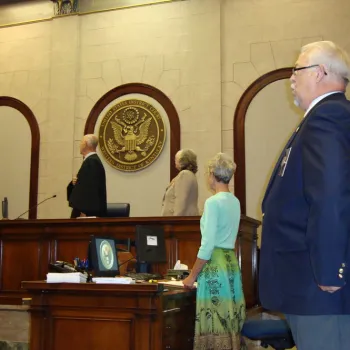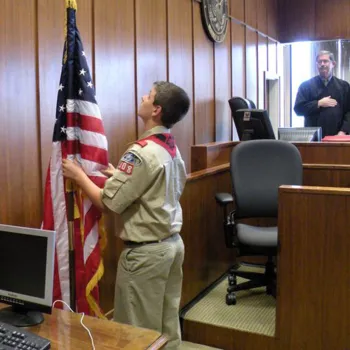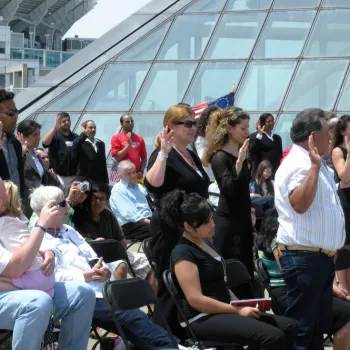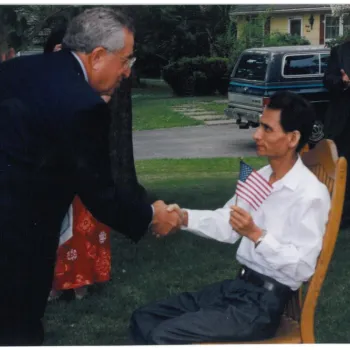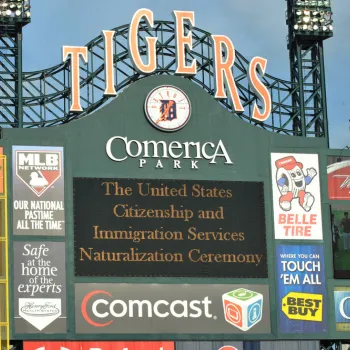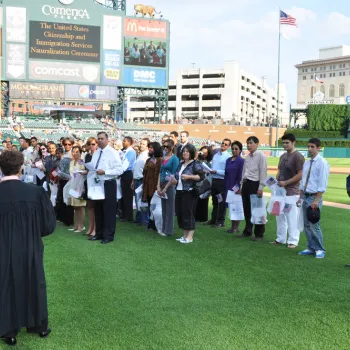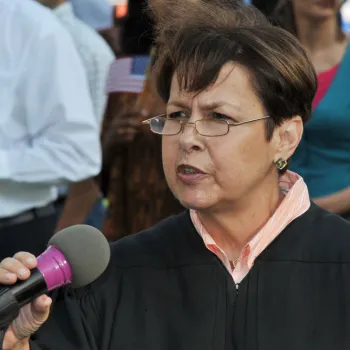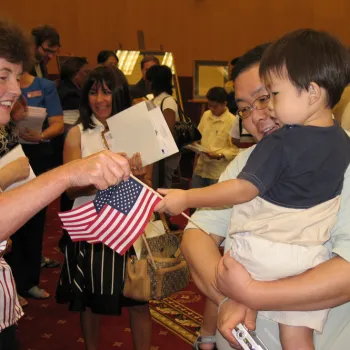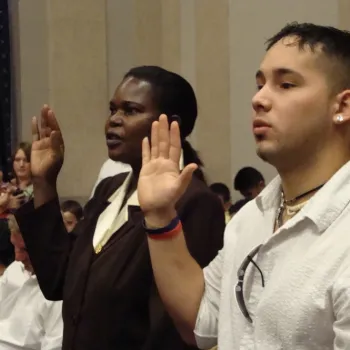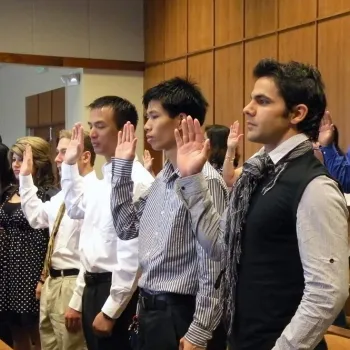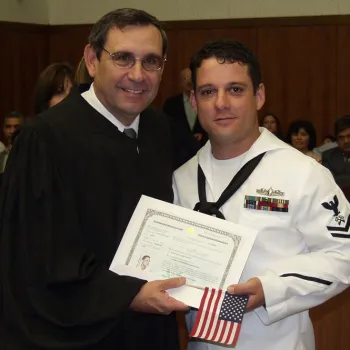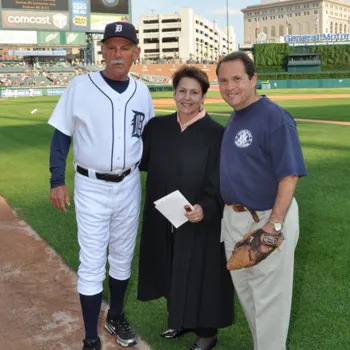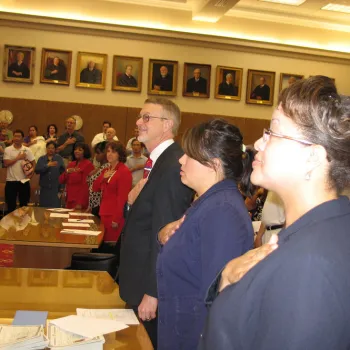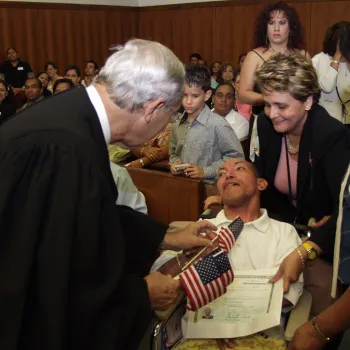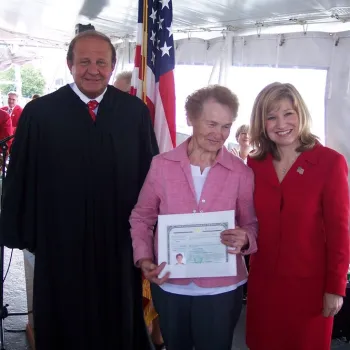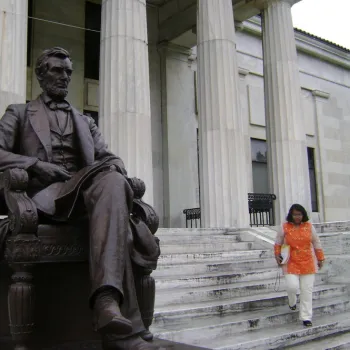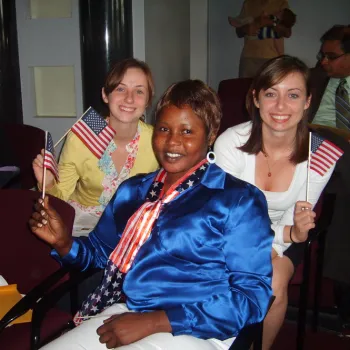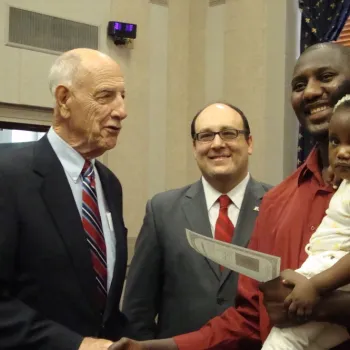Naturalization ceremonies are public events that bring communities, schools, and new citizens together in federal courthouses and other community sites throughout the year. Schools often ask to participate in ceremonies.
Are You Qualified to Be a Citizen?
Take this practice test and find out if you would pass the test to become a naturalized U.S. Citizen.
Students Welcome New Citizens to Constitutional Rights and Responsibilities
Federal courts conduct citizenship ceremonies, which are open to the public and may be attended by hundreds and sometimes thousands of people. These important civic events, conducted in courtrooms and at sites in the community, present an educational opportunity for promoting public understanding of the federal courts.
Schools may want to approach their local federal court to ask if they can volunteer as part of a service-learning project. The following are activities that some courts bring into their ceremonies.
School Participation: Options for students range from simply observing to taking an active part in the event. Examples include students:
- Serving as the color guard.
- Leading the Pledge of Allegiance and/or a patriotic song.
- Writing and delivering welcome letters to the new citizens at an appropriate time before, during, or after the event.
- Reading a personal essay related to the occasion.
- Greeting participants in a receiving line.
- Presenting the new citizens with flags.
- Staffing tables with information about jury service, voter registration, and community volunteerism.
- Conducting podcast interviews with new citizens.
- Interacting with people from countries whose language they are learning.
Community Involvement: Civic organizations also may want to participate in citizenship ceremonies in some of the ways described here. Sometimes local members of Congress participate in naturalization ceremonies. On occasion, the media covers the events.
Some Pathways to Citizenship Become Pathways to the Federal Bench
Naturalization ceremonies are significant to every federal judge who administers the Oath of Citizenship. However, for these three judges, and many more, the ceremony brings back memories of their own journey to citizenship and, ultimately, to the federal bench.
At naturalization ceremonies they preside over, U.S. District Court Judge George Z. Singal, of Maine; Ninth Circuit Court of Appeals Judge Jacqueline H. Nguyen, of Los Angeles; and Second Circuit Court of Appeals Judge Denny Chin, of New York; administer the same Oath of Citizenship that their parents took or that they took as young people.
In these four-minute videos, the judges talk about their respective pathways to the bench from different cultures and different parts of the world. Each agrees that swearing in naturalized citizens is a meaningful and emotional experience for them every time they do it.
Constitution & Citizenship Day 2019: Judges, Baseball Fans Welcome Newest Americans
Watch courts celebrate Constitution Day and Citizenship Day by welcoming new American citizens in naturalization ceremonies in ballparks across the U.S.

